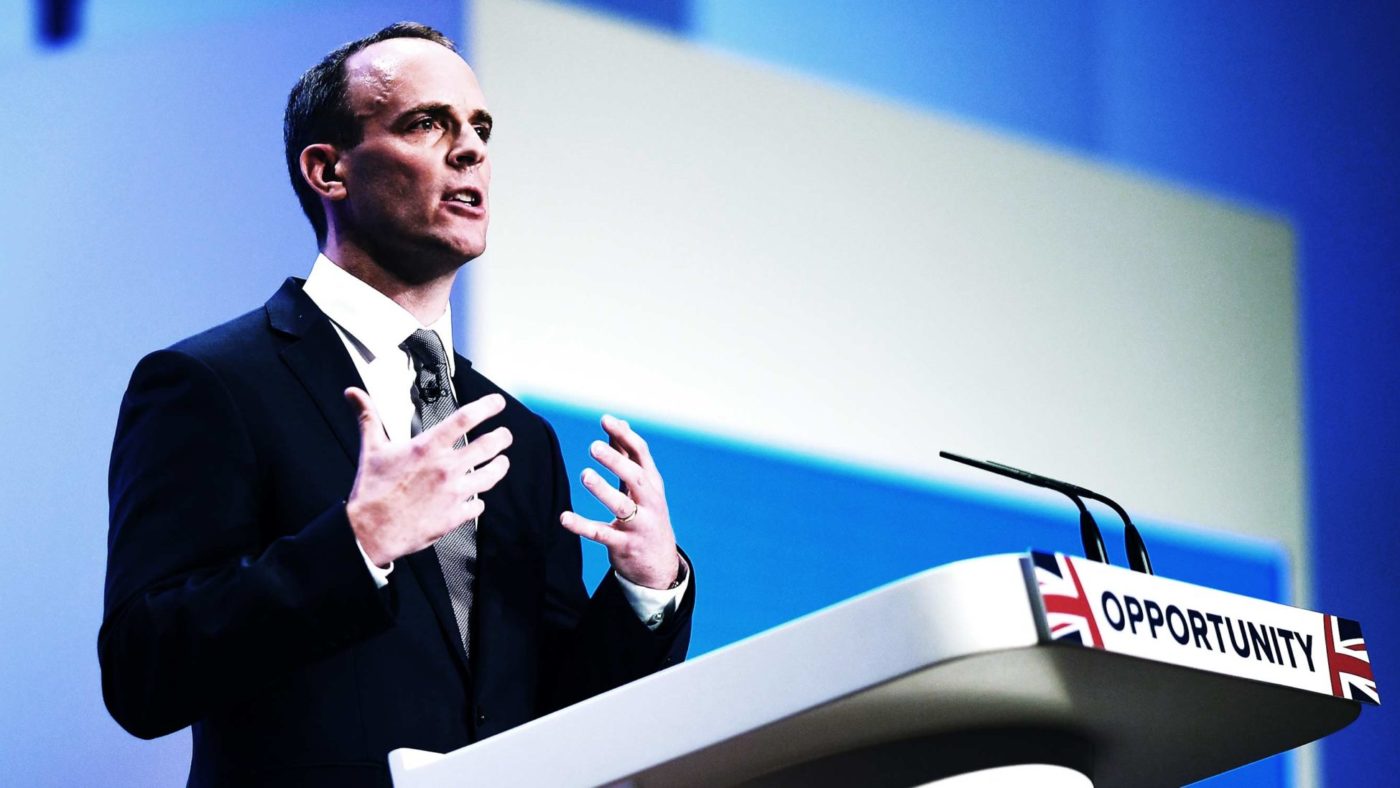Former Brexit Secretary – and now Conservative leadership candidate – Dominic Raab made headlines last week when he suggested that the government should “cut the basic rate of income tax by a penny a year, as Nigel Lawson did in the 1980s”. Echoing a proposal made by the Centre for Policy Studies, he also said that the National Insurance threshold should rise to the same level as the personal allowance.
This is undoubtedly a bold and ambitious tax-cutting agenda. With a 15p basic rate of income tax, and no tax at all on earnings below £12,500, an average earner should save more than £1,300 a year. Some 2.5 million more people would be taken out of direct tax altogether.
So you might expect right-of-centre opinion to have been uniformly impressed by Raab’s proposal – even allowing for the usual caveat: “how do we pay for it?”
Certainly, I am delighted to see tax cuts of this scale back on the political agenda. And drawing inspiration from Nigel Lawson’s tax reforms is seldom a bad thing.
Yet several of my free-market friends – the sort that might once have worn “tax cuts please” badges to Cameron-era party conferences (it was a more innocent time) – seem rather underwhelmed by Raab’s tax agenda. To their mind, these are the wrong tax cuts, proposed for the wrong reasons.
And what this points to is a quite fundamental intellectual divide within the broader centre-right movement – one that has interesting implications for the future of tax policy.
Essentially, there are two different reasons to favour lower taxes. The first is to put more money in ordinary people’s pockets. The idea is that it’s their money – they earned it – and they should get to spend it on themselves, their families, and their friends. What’s more, individuals acting in their own interests tend to spend money better than the government would on their behalf.
This is a morally-grounded political agenda – it’s about government rewarding people who do the right thing by going out and working, and about getting those people to vote for a government that is obviously on their side.
When you take this approach to the tax system, you’ll tend to focus on things like the personal allowance, the basic rate of income tax, and prominent indirect taxes like fuel duty. You’ll probably not pay much attention to higher earners, investors, and so on.
The second reason to cut taxes is to boost economic growth. This is a more technical, economic agenda and usually has a dual focus. First, you want to bring down top marginal tax rates to attract and encourage more investment. Second, you want to make the tax system as neutral as possible, so that it doesn’t distort economic decision-making.
Simplifying somewhat, the goal is to get more capital allocated more efficiently – that should lead to faster productivity growth, better real wages, and higher living standards in the long run. You’re more concerned with the economic big picture, and less focused on solving ordinary voters’ problems today.
Economic tax reformers will consequently likely favour a rather different agenda to political tax cutters. They’ll prioritise policies like scrapping stamp duty (probably the worst and most distorting tax we have). They’ll want to bring down the top rate of income tax, eliminate the double taxation of corporate profits, and let companies write off capital investment against their tax bills immediately and in full.
My own take, however, is that neither one of these rather distinct tax agendas can succeed by itself. The popular approach to cutting taxes may be just, and may win widespread approval. But it won’t usually have a very significant effect on growth, and will – as a result – often have a deleterious effect on tax revenues. Unless accompanied by wider reform of the state and the services it provides, such an agenda can prove difficult to sustain.
On the other hand, the free market economist’s view of the world is unlikely to ever be a political winner.
It’s bad enough that the focus is likely to be on those less appealing “victims” of the tax system – footloose international capitalists, profit-hungry corporations, and high-earners with surplus income to invest. But another problem is that meaningful tax reform inevitably means creating winners and losers – and the losers will tend to cry a lot more loudly than the winners will cheer.
This means that unless pro-growth reforms are accompanied by a clear retail offer to grease the wheels, they’re likely to run out of steam before they even get going.
Ultimately, I’d argue that you need effective pro-growth policies to make significant tax cuts possible; but you also need effective tax cuts to get a pro-growth agenda off the ground.
In other words, the two right-of-centre schools of thought on tax needn’t be seen as mutually-exclusive, let alone opposed to one another.
On the contrary, the key to a truly successful tax policy – for this government and for any future ones – is blending them together, and identifying cases where they overlap.
CapX depends on the generosity of its readers. If you value what we do, please consider making a donation.


